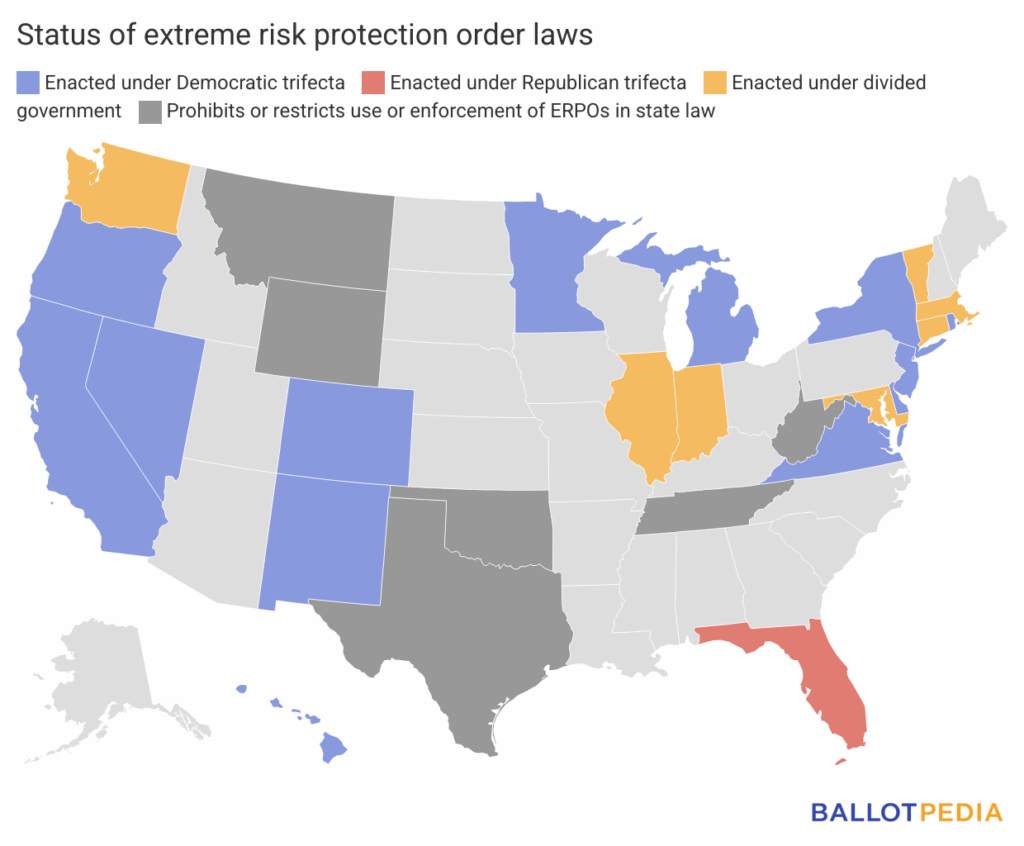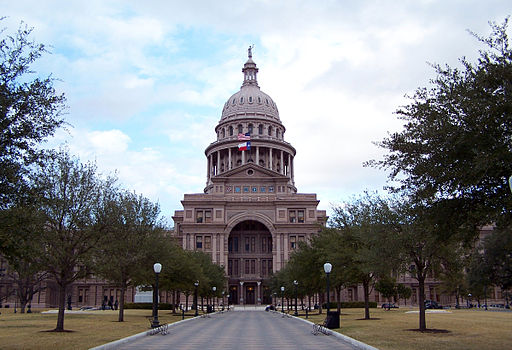On June 22, Gov. Greg Abbott (R) signed SB 1326 into law, banning the enactment or enforcement of extreme risk protection orders (ERPOs) — also known as red flag laws — in the state.
The bill explicitly applies to any state agency or authority, university systems, municipalities, counties, special districts and authorities, and district attorneys from "adopt[ing] or enforc[ing] a rule, ordinance, order, policy, or other similar measure relating to an extreme risk protective order unless state law specifically authorizes the adoption and enforcement of such a rule, ordinance, order, policy, or measure."
The new law makes an exception if the ERPO is issued based on conduct "that resulted in a criminal charge for the person who is the subject of the order," or that is issued under the state's Family Code, which includes protective orders stemming from domestic violence incidents.
The Republican-sponsored bill passed the legislature largely along party lines, but one Democrat in the Texas House of Representatives voted for the bill.
With the new law, Texas is the sixth state to ban or restrict the use of ERPOs and the second state to adopt such a law in 2025, joining Montana. Oklahoma, Tennessee, West Virginia, and Wyoming all have similar laws. Oklahoma became the first state with such a law in 2020. All six states to adopt these laws had a Republican trifecta in control of state government at the time.
Twenty-one states have laws authorizing courts to issue extreme risk protection orders. These laws typically allow family members, household members, and law enforcement officers to petition a court to restrict an individual's access to firearms when it is believed the individual is a threat to themselves or others. Of states with these laws, 13 had a Democratic trifecta when they adopted the law, seven had divided governments, and one — Florida — had a Republican trifecta. Michigan and Minnesota were the most recent states to adopt ERPO laws, doing so in 2023.

In the Senate, Sen. Bryan Hughes (R), who introduced the bill, said, "Texas law allows a law enforcement officer to take into custody someone who appears to be a danger, to take that person into custody, that's not affected by this bill. ... This does affect constitutional rights that would otherwise be taken away without due process."
Sen. José Menéndez (D), who opposed the bill, said, "This bill pushes the balance towards the person that would maintain a gun under any circumstances, even when local government, special authority, all these people who might have respect [for] the Constitution would say we need to temporarily remove the firearm for the safety of the person and their loved ones."
In the House, Rep. Cole Hefner (R), one of bill's sponsors in the lower chamber, said, "I would be concerned with a rogue city judge, a county judge, a district judge. ... This is to make it clear that we’re not going to violate anyone’s right to bear arms."
In opposition, Rep. Ana-Maria Ramos (D) said, "This bill puts lives at risk by stripping communities of common-sense tools available to stop violence before it happens. ... And not only does it eliminate an option for a policy that we don’t even have in place in Texas, it criminalizes the people who try to use this approach."
Additional reading:



